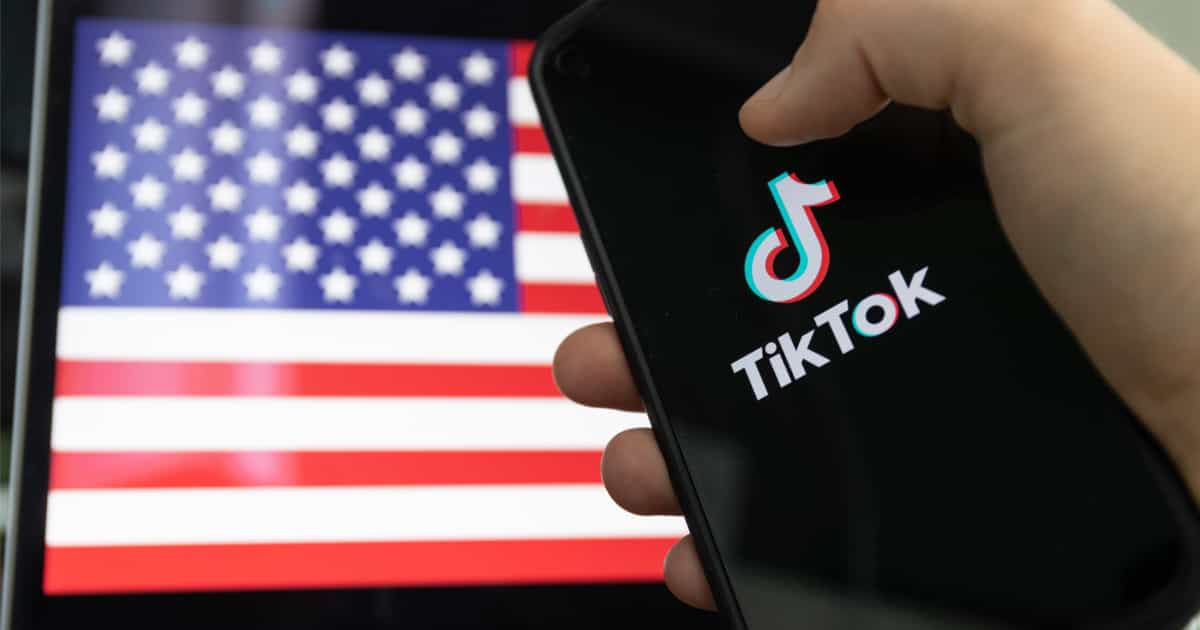Lawmakers have ramped up suggestions that video-sharing app TikTok is a surveillance tool for the Chinese Communist party. In response to a call from an FCC commissioner for app stores to ban the app, TikTok’s parent company has opened up. The company wants U.S. officials to know it already has strong data security for TikTok, and it’s only going to get stronger.
FCC and Other Lawmakers Call for TikTok Ban
Earlier, we reported on an open letter from FCC commissioner Brendan Carr. Carr called TikTok a sophisticated surveillance tool used by the Chinese government to spy on Americans. The commissioner called on Apple and Google to remove TikTok from their respective app stores.
The issues cropped back up following a Buzzfeed report that TikTok engineers in China had access to U.S. data from at least September 2021 until January 2022. TikTok has repeatedly insisted it stores U.S. data in the United States, which would lead users to believe their information was safe from prying Beijing eyes.
In its own letter (PDF) responding to the concerns, ByteDance confirmed that certain employees outside the U.S. do, indeed, have access to information from American users. The company claimed, however, that these employees must clear a number of internal security protocols first. TikTok’s U.S.-based security team oversees these security protocols, the company insists.
TikTok CEO Shou Zi Chew said none of the information is shared with the Chinese government.
Moving US Data to American Servers
TikTok is continuing to move data from U.S. users to American servers, the company said. In fact, Chew claimed that “we now store 100% of U.S. user data by default in the Oracle cloud environment.” He also stated that TikTok is working with Oracle on “new, advanced data security protocols” it hopes to finalize soon.
These servers, owned by Oracle, are maintained within domestic data centers. Nevertheless, some lawmakers remain unconvinced TikTok or its parent company are truly sincere.
Senator Marsha Blackburn, of Tennessee, voiced concerns to Bloomberg.
TikTok’s response confirms our fears about the CCP’s influence in the company were well founded. The Chinese-run company should have come clean from the start, but it attempted to shroud its work in secrecy. Americans need to know if they are on TikTok, Communist China has their information.
Only time will tell just how U.S. lawmakers respond to TikTok’s reassurances. It’s definitely concerning that the Chinese company kept its practices so pace for this long. Neither Apple nor Google have yet responded to commissioner Carr’s request that they delete TikTok from their app stores.

Jeff:
Your closing statement about TikTok’s evolving disclosures are well aimed.
This is becoming more complicated than it deserves to be. Our problem with the continuing and fast-evolving phenomenon of social media is that any meaningful legislation and regulation is years behind the technology, or even the major threats that it enables. Those entrusted with codifying public protections are not simply outpaced, but out manoeuvred at speed by metastatic adaptations to any perceived controls that a regulator or a platform might even contemplate.
The calls by legislators for either Apple or Google to remove TikTok from their online market places is misplaced. The app has not violated either company’s policies, and the justification for its removal would be based on little more than a public verbal assertion of threat. A capricious action at best, an irreversible slide towards abuse in the few remaining free markets at worst. It’s bad enough that authoritarian governments abuse the ‘adherence to the rule of law’ justification for disallowing apps that undermine their grip on power. With some European countries and the USA contracting the civil liberties of specific populations, it takes little to imagine how this practice could be used to render those targeted groups entirely invisible whilst accelerating that process.
Objectionable app removal should not be left to the case-specific demand of government to the private sector, but be the transparent subject of codified law.
What is required is specific legislation identifying the characteristics and outlawing predatory abuses of apps, social media or otherwise, and granting the regulatory authority to remove these apps from the market, even when the private sector fails to act.